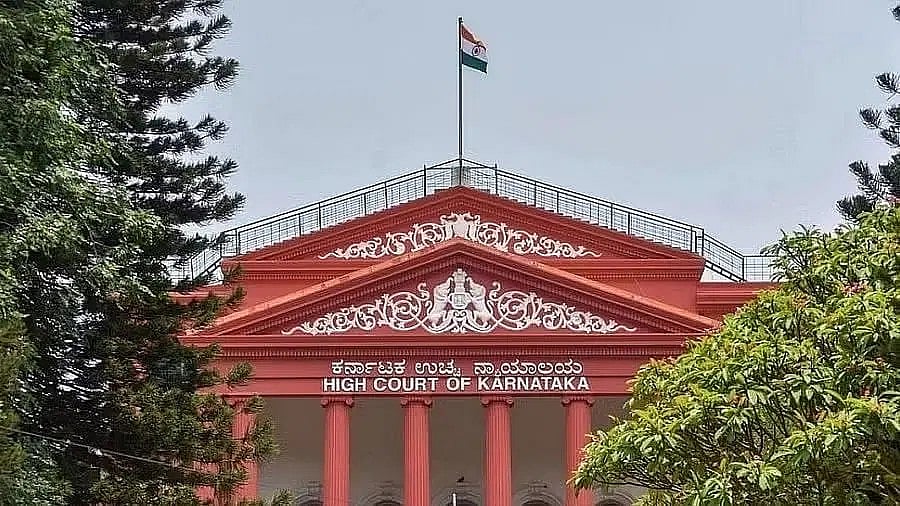
Karnataka High Court
Credit: DH File Photo
Bengaluru: Trial and sessions courts must keep in mind certain grounds while imposing punishment in the form of fines in cheque-bounce cases under the Negotiable Instruments (NI) Act, the High Court has ruled.
Justice J M Khazi listed five important aspects that courts need to consider.
The trial and the first appellate courts have to consider the quantum of loan, the defence taken by the accused, more particularly whether he has taken a false defence and failed to prove the same.
“Whether the accused has dragged on the matter unnecessarily and thereby delayed the disposal of the case at the stage of trial, appeal, revision and before the Hon’ble Supreme Court. Whether the transaction relates to business between the parties or the parties are business class who would have utilised the amount for their business and flourish, or in other cases, the returns the loan amount would have brought, if it was kept in a fixed deposit in a nationalised bank, etc,” Justice Khazi said.
The high court gave this direction while dismissing a petition filed by A V Poojappa, a resident of Bagepalli in Chikkaballapur district. He had taken a loan of Rs 5.5 lakh from S K Vagdevi. Since the cheque issued by Poojappa was dishonoured, Vagdevi filed a complaint under the NI Act.
The trial court convicted Poojappa and ordered him to pay a fine of Rs 7.2 lakh with default sentence of imprisonment.
The trial court also directed him to pay Rs 7.15 lakh, of the fine amount, to the complainant as compensation. In the appeal moved by the accused, though the sessions court upheld the conviction, it reduced the fine amount to Rs 5.55 lakh.
The accused moved the high court challenging these orders and argued that the presumption under sections 118 and 139 of the NI Act was wrongly applied.
Justice Khazi noted that the cheque in question was drawn on the account of the accused, maintained with his banker and bears his signature is not in dispute.
“Unfortunately, in the present case, the complainant has not challenged the order of the sessions court reducing the fine amount and therefore, in the present revision, the same could not be modified, restoring the fine imposed by the trial court. However, the trial court as well as the sessions court shall keep in mind the grounds on which to fix the fine amount,” the court said, while upholding the conviction.
